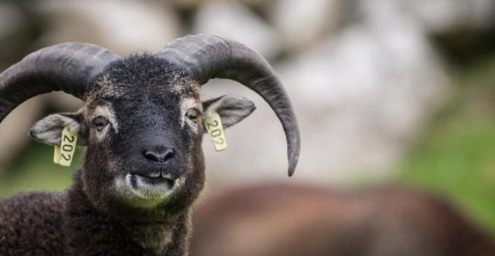Wild animals’ immune systems decline with age, sheep study finds
It is well established that weakened immune systems in old age affect people’s health and fitness, but a study suggests that it is also an issue for wild animals.
Researchers studying wild Soay sheep on the remote St Kilda archipelago have revealed that the animals’ immune responses to parasitic worms decline through adulthood.
Immune decline

Animals that show faster deterioration in resistance to the worms – which live in the sheep’s gut – are more likely to die during the following winter.
The findings provide the first evidence linking declining immune function and survival in wild animals.
Deterioration of the immune system in old age – a process called immunosenescence – is a huge issue for human health, as it reduces people’s ability to fight viruses and bacteria, researchers say.
The team believes their findings could offer insights into how people’s ability to ward off larger parasites like worms might also decline in old age.
Infection Sampling
Researchers from the University of Edinburgh, Moredun Research Institute and Centre for Biodiversity Dynamics, Norway, made the discovery using blood samples taken from Soay sheep between 1990 and 2015.
Analysis of more than 2,000 samples taken across the lifetime of almost 800 animals revealed that levels of antibodies against a common worm infecting the sheep fell in old age.
The study, published in the journal Science, was supported by the Biotechnology and Biological Sciences Research Council, Natural Environment Research Council, and Scottish Government.
The research was carried as part of a long-term study of Soay sheep, which began in 1985. The animals have lived wild on the islands of St Kilda – a world heritage site owned and managed by the National Trust for Scotland – for thousands of years.
Our work provides the first evidence that deterioration in immune function in old age plays an important role in wild animal populations. It also provides rare clues from outside the laboratory that our ability to fight worm infection might fade as we age. Most studies of worm infections in humans focus on children and young adults in developing countries, with much less attention paid to older individuals.
With the drive for more efficient farming practices, efforts are being made to extend the productive life-span of livestock species, with means the average age of farmed animals is likely to increase in future. Studies such as these are critical as they provide important information on the likely consequences of farming older animals in terms of their ability to fight infectious diseases.
For anyone who visits St Kilda, the Soay sheep are a highlight, being living artefacts of the archipelago’s past – a relic from the earliest settlers. I therefore find it fascinating that these castaways from a lost culture still have things to teach us today. This new research shows that there is still a lot more to discover about this ancient breed and their environment.

